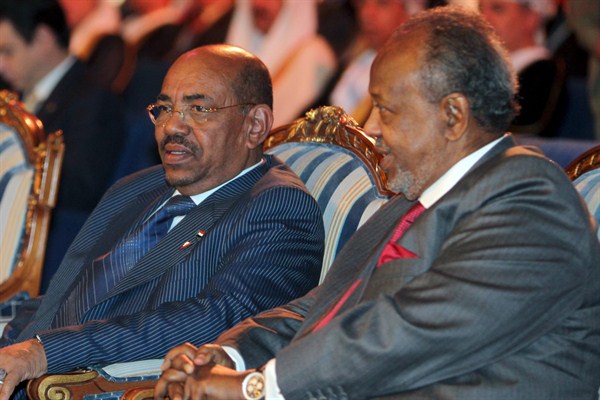When a group of four Arab countries led by Saudi Arabia launched a dramatic diplomatic gambit by severing ties with Qatar in early June, the crisis immediately commanded the world’s attention. The leaders of major powers, from Washington to Paris and Beijing, recognized the situation’s high stakes and—with the exception of some early-round Twitter provocation from U.S. President Donald Trump—began pushing for a resolution.
In Africa, too, the Gulf spat drew swift responses, with countries such as Mauritania and the Comoros following Riyadh’s lead and breaking ties with Doha, while others staked out less forceful positions or promoted dialogue. Meanwhile, in the Horn of Africa, the six-country region in the continent’s northeast that is geographically closest to the action, the reaction could be summed up with one word: panic.
Listen to Michael Woldemariam discuss this article on WPR's Trend Lines Podcast. His audio begins at 19:38:

